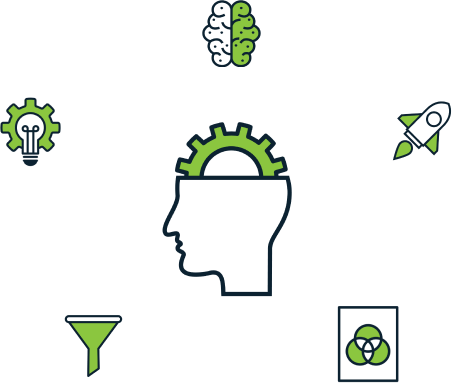What is a Concussion?
Brain Injury:
A brain injury occurs when the brain sustains damage, typically from a blow, bump, or jolt to the head, or from a penetrating injury. This damage can disrupt normal brain function and lead to a wide range of symptoms, depending on the severity and location of the injury. Common symptoms may include headaches, confusion, memory problems, changes in mood or behavior, and difficulties with movement or coordination. Brain injuries can vary greatly in their severity, from mild concussions to more severe traumatic brain injuries with long-term consequences. Early recognition and appropriate management are crucial for the best possible outcomes.
The consequences of any brain injury are unpredictable. It can alter our identity, thoughts, actions, and emotions in an instant. Remember these key points:
- A person with a brain injury is still a person foremost.
- No two brain injuries are identical.
- The effects of a brain injury are intricate and differ significantly from one individual to another.
- The impact of a brain injury depends on factors like the cause, location, and severity of the injury

What is a Concussion?
The Centers for Disease Control and Prevention (CDC) defines concussion as a traumatic brain injury (TBI) caused by a bump, blow, or jolt to the head or by a hit to the body that causes the head and brain to move rapidly back and forth. This sudden movement can cause the brain to bounce around or twist in the skull, stretching and damaging brain cells and creating chemical changes in the brain.
There may be signs of injury to the head, such as bruising or cuts, or there may be no visible injury. A person does not necessarily pass out after a concussion.
Medical professionals often refer to concussions as “mild” TBIs (mTBI) because they are not usually life-threatening; however, concussions are serious injuries.
ProgramsWhat is Post-Concussion Syndrome?
Post-concussion syndrome (PCS) is a condition that can develop after a person experiences a concussion, typically persisting for weeks, months, or even years after the initial injury. From a functional medicine perspective, PCS is viewed as a complex and multifaceted disorder that involves dysfunction in various systems of the body, including the neurological, immune, endocrine, and gastrointestinal systems.
Following a concussion, the body undergoes a cascade of physiological changes, including inflammation, oxidative stress, neurotransmitter imbalances, and disruption of hormonal pathways. These disruptions can lead to a wide range of symptoms commonly associated with PCS, such as headaches, fatigue, cognitive difficulties, sleep disturbances, mood changes, and sensory sensitivities.
Functional medicine approaches PCS by addressing the underlying imbalances and dysfunctions contributing to the persistent symptoms. This may involve comprehensive assessment of the patient’s health history, lifestyle factors, diet, environmental exposures, and genetic predispositions. Treatment strategies focus on restoring balance and function to the body’s systems through personalized interventions, which may include nutritional support, targeted supplementation, lifestyle modifications, stress management techniques, and rehabilitative therapies.
By addressing the root causes of PCS and supporting the body’s innate healing mechanisms, functional medicine aims to promote recovery, improve symptoms, and enhance overall well-being for individuals struggling with post-concussion syndrome.